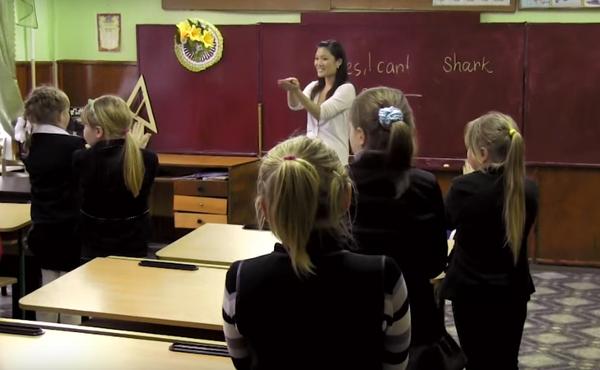SPONSORED CONTENT -- (StatePoint) The Peace Corps, established in 1961, partners with communities abroad to develop sustainable solutions for the world’s most pressing challenges at the grassroots level. While all volunteers returned home in March of 2020 due to the COVID-19 pandemic, the agency is working to return to service and is now actively recruiting volunteers of backgrounds historically underrepresented in the organization, including African-Americans, Hispanic-Americans and Asian-Americans.

“As part of our mission, we seek to reflect the rich diversity of the United States abroad, bringing different perspectives and solutions to development issues in the countries we serve,” says Carol Spahn, acting director of the Peace Corps. “We also seek to create inclusion – a culture that encourages collaboration, flexibility and fairness; and leverages diversity so that all individuals are able to contribute to their full potential.”

If you’re interested in Peace Corps service, here’s what to know.
New Challenges
While Peace Corps service is demanding for every volunteer, being from a diverse ethnic background can introduce additional challenges, according to those who have served.
“I had to deal with people’s expectations about Americans looking a certain way. About once a week I had to explain that Americans come from diverse backgrounds, and that I was just as much an American as any other Peace Corps volunteer,” says Neng Lee, a first-generation Hmong-American who served as a health volunteer in the Kyrgyz Republic (Kyrgyzstan) from 2015 to 2017, and as a youth development volunteer from 2017 to 2019.
Valuable Assets
In other cases, a diverse background can be an advantage.
“Integrating into Jamaican culture was easy due to the many similarities with my Mexican culture,” says Maria Elena Venegas Banulelos, a Spanish speaking, Mexican-American Peace Corps volunteer who served in Jamaica. “For instance, both Mexicans and Jamaicans are very religious, we enjoy a little spice in our food, and like to dress our best when in public. Both cultures love soccer, dancing and loud music. Also, the environments are similar in the structure of the homes and agricultural products, and both are home to the most humble people.”
This sentiment is shared by other volunteers as well.
“My color and my accent have not affected my volunteer work negatively, instead this has allowed me to integrate well in my community, and people even call me ‘African,’” says Aboubakar Bodi, who was born in Togo and served in Jamaica.
Bringing Skills Home
Peace Corps service can be an emotionally rewarding experience and an effective way to develop the skills needed to make a difference in one’s community back home. It can also be a key stepping stone in one’s career. Volunteers serve for 27 months in education, health, agriculture and other sectors, and upon their return, they are able to usher innovative solutions to collective problems in U.S. communities.
“I am very proud of having taught CPR and first aid to people in different villages in the Kyrgyz language. I also translated most of my CPR and first aid materials into Kyrgyz,” says Lee, who notes that, “Volunteering opens so many doors in the future, and the people you meet along the way will help you.”
To learn more about Peace Corps or to connect with a recruiter, visit peacecorps.gov.
“Volunteers are international cultural ambassadors representing the United States. That’s why it’s so important our body of volunteers actually reflects the diversity of the country,” says Spahn.




